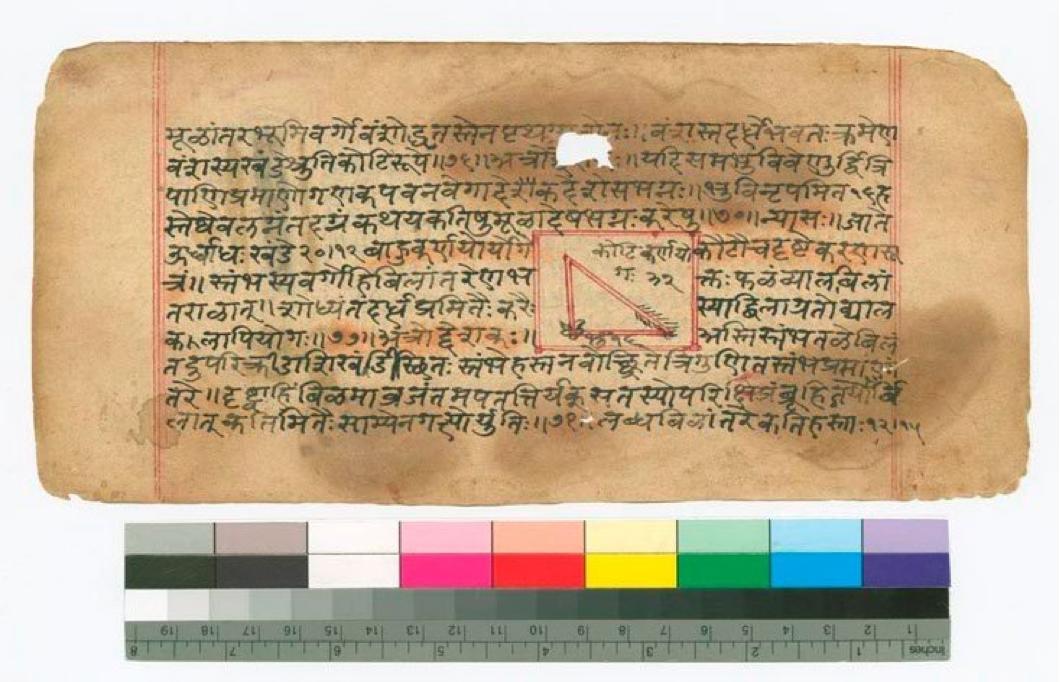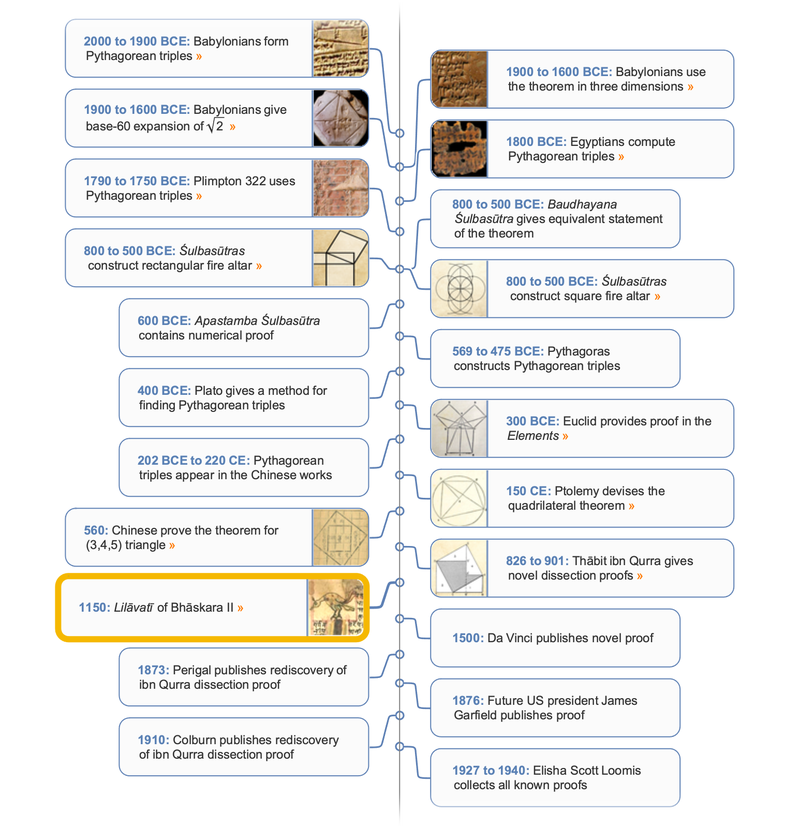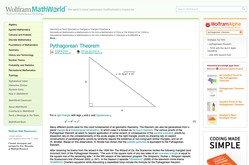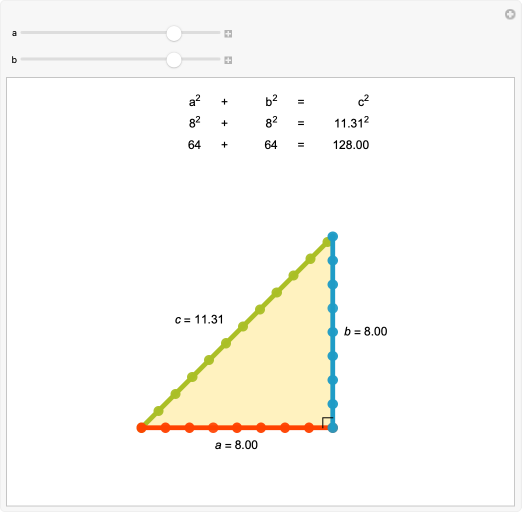1150
Lilāvatī of Bhāskara II
Playful mathematics
The writings of Indian mathematician and astronomer Bhāskara II (1114–1185) made significant contributions to mathematical and astronomical knowledge in the 12th century, making him perhaps the greatest mathematician of medieval India. Bhāskara II's main work was entitled the Siddhānta Shiromani ("Crown of Treatises"), which contained the Lilāvatī (mainly about arithmetic and measurement), Bijaganita (about algebra), and Grahaganita and Golādhyāya (both concerning astronomy).

Lilāvatī, meaning "playful" or "one possessing play," is the first volume of Bhāskara II's main work. It was written for his daughter in the year 1150 and consists of 277 verses dealing with such mathematical topics as problem-solving, squaring numbers, the Pythagorean theorem, progressions, measurement, and permutations. Verses 151–152 consider a problem involving use of the Pythagorean theorem for finding the point at which a pet peacock on a pillar will catch a snake retreating into its hole.






